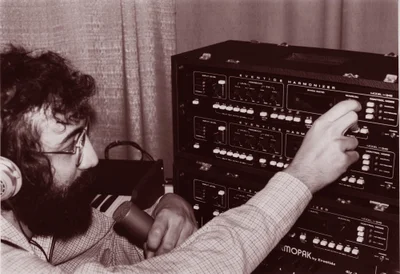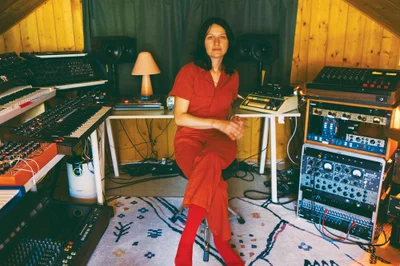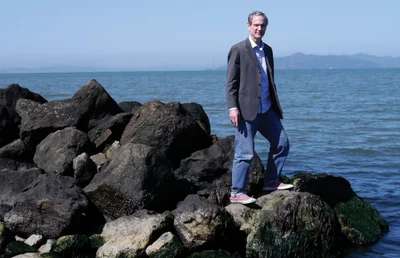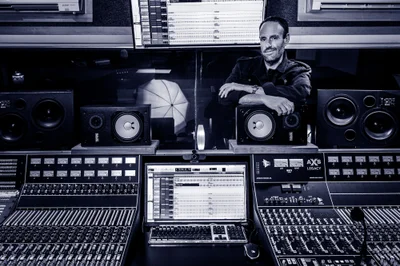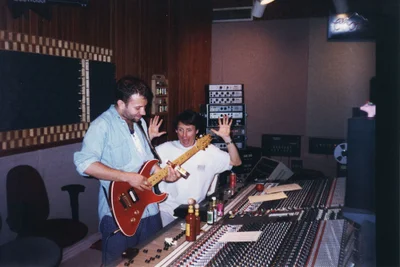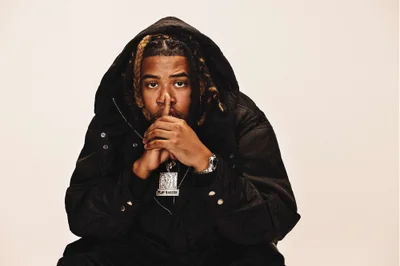[ listen-link ]
Around 1986 you produced The Monkees' comeback album called Pool It...
This is not one of my favorite stories. [laughter] Yes. Disastrous. The record label and I had an idea to sort of recreate the shaky garage band sound that they kind of had from the '60s. The band, especially Davy Jones, wanted a very polished, middle of the road record. It was a constant tugging of the two. I was getting flack from the label because it wasn't what they wanted to hear and I was getting flack from the band because they wanted to go another way.
Was this the original four?
Mike Nesmith wouldn't partake, very sensibly. Actually Micky Dolenz was great. He was living in England at the time. He actually called me out of the blue. "Hi, this is Micky Dolenz. Can I come over?" What in the heck? I grew up with these guys and their TV show. I was like, "Heck, you can come over now!" [laughter] He and Davy Jones showed up one day and had coffee in my home. They'd heard the Squeeze album, East Side Story. Micky loved it and wanted to make a record like that. I thought I could see it, but we made an album that was really middle of the road. Davy Jones brought in all these schmaltzy ballads. The sessions ended with us having a big row in the studio one late afternoon. Davy was calling me every name under the sun. I really lost it. I told him to get out of my studio. Anyway, there were two songs on the album that could've been big hits. "Heart and Soul" was one. The other was a version of a Wreckless Eric song ["(I'd Go The) Whole Wide World"]. The album was not great.
Did they play on it?
Yeah, Micky played some drums and some guitar, although we had session drummers and whatnot. You know who was good? Peter Tork was an amazing multi-instrumentalist. I had no idea! He had a bunch of songs that would've made a great album. But of course they wouldn't have it — Jones wouldn't have it. Peter was great. I was really, really taken with him. He was full of life and had loads of ideas. He'd had a really rough time since they broke up, but he'd really come out of it all. He still plays around New York. The record came out but it bombed. There was a single that did fairly well, but they lost opportunities. It was distributed through Rhino; they lost a lot of money, which is a shame. It was a chance for me to work with childhood heroes, which is something that probably shouldn't be done. It's like actors — you love them on screen, but you really don't want to know about their private lives. It ruins the myth. That was definitely the shame about it.
How do you approach listening to music recreationally when you work so closely to it? And what have you been listening to lately that you've been particularly digging?
It's hard! I find it really difficult. I tend to listen to stuff as I'm working in my office. I make mental notes as I listen. If something really takes me, I'll follow up on it. The last Radiohead and Kings of Leon albums, in particular, are great sounding albums. Nigel Godrich is very good.
Do you have any favorite mastering engineers?
Bob Ludwig, certainly. He's one of my heroes!
He's a busy guy. [laughter]
Yes, a busy guy and very expensive! But it just sounds fantastic.
He's able to make loud records that you can actually turn up louder with no problem.
I know. It's fabulous. I also like Stephen Marcussen's work. Another American mastering engineer. He's the one for me right now. Chris Parmenides at Unity Mastering Studio is my go-to guy in London.
You've dabbled in mastering, right?
Yeah, I tinker. But I like to leave it to the guys who do it for a living. Mastering is becoming more and more important. That's why you can play things as MP3s and still have them sound pretty good. It's an important process to go through in order to maintain quality. I think it's interesting that most of the good guys are American. It's a process that a lot of people think they can do at home with a few plug-ins. You can't! These guys can change the whole feel of a track.
So how often do you get to be a musician these days? Or do you?
Not often enough, really. I just finished an album and I did contribute a bunch of keyboard parts, percussion, and even back-up vocals! So I'm getting there. I have a Pro Tools rig in my home studio so I can work on tracks and get things ready for mixing. I love that flexibility. I'm just now trying to find the time to write. I also have a guitar at home that just kind of lurks in the corner. I can pick it up whenever the mood gets me!
Is that your main instrument?
No, no. I'm not a guitarist. The keyboard is my main instrument but I like to pick away at the guitar. I have a very good ear and I can play back pretty much any lick I hear or want to convey. Strange skills for a non-guitarist. But, I do that quite a lot and I come up with some interesting things. I keep myself amused! If your mindset isn't about being a musician, it's really hard to find the time to fit that in. Everything else takes priority.
How was the learning curve for Pro Tools? Did you have a friend come in and help you get started?
Yes, I did actually. I had an old engineer friend come in who has his own studio. It's fairly simple. I thought it would be a real nightmare because I'd never really bothered to learn beyond starting and stopping it. All these young engineers are so fast so I'm fine leaving the hard stuff to them! But I thought I really ought to learn. It's a pretty simple process; especially once I wrapped my head around the thought that it's basically a mixing board and a tape-recorder built into one box. Just think of it in terms of switching back and forth in the same space.
How seriously do you use it?
Pretty seriously. I'm also using it a lot to do pre-mixing. Setting up complex moves etc. I've gotten involved with some more projects recently and I'm also developing some new bands. That's part of my management thing, but I'm also involved as a producer with one of them. So, it's good that I can work on songs, and send them back. I love the way that you can send things electronically back and forth now. I find that very useful. You don't waste a lot of time when you get to the studio. To me it's a fantastically evolved multitrack tape recorder — getting it to sound like an Ampex is the hard part!
